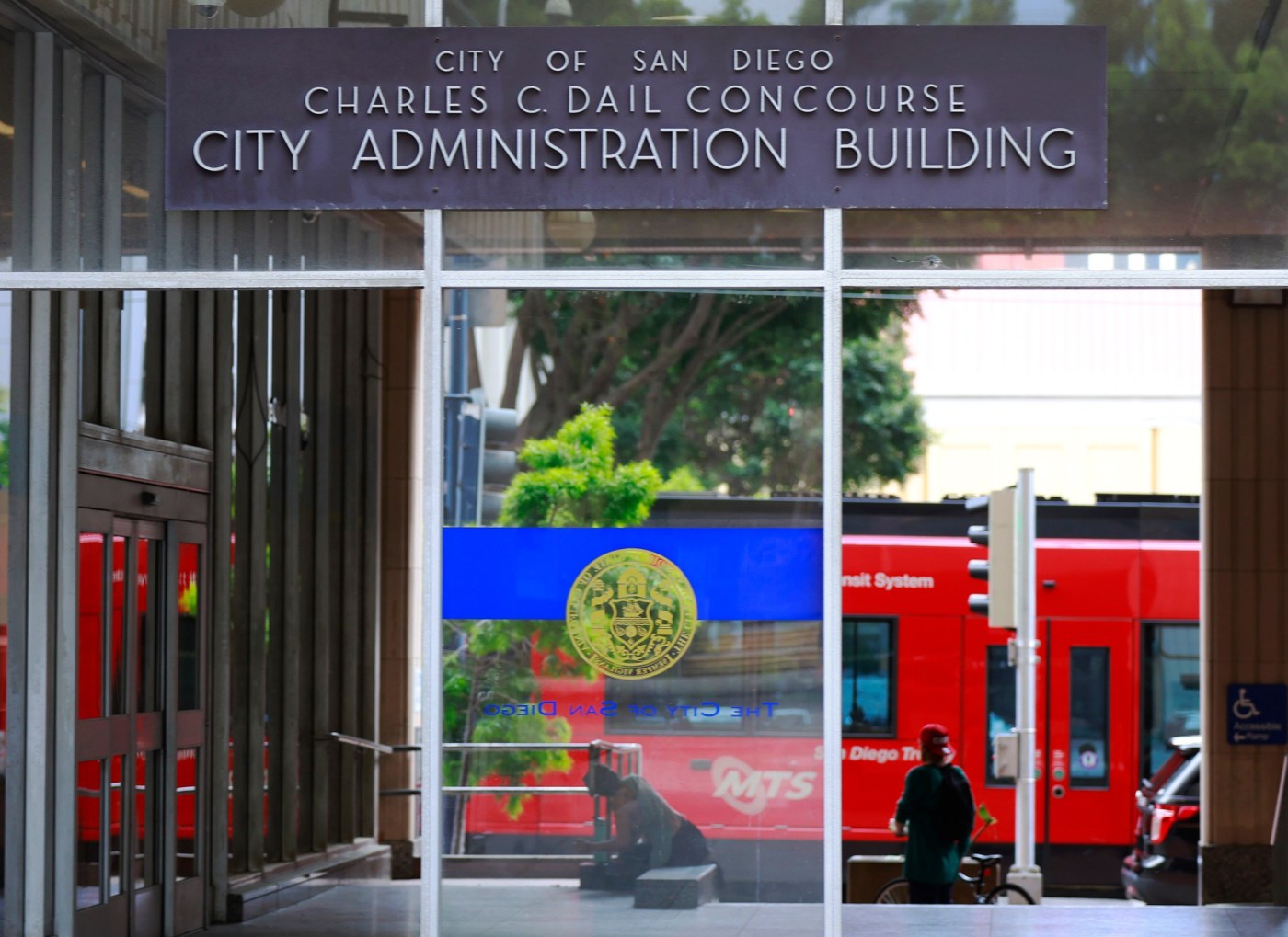A federal judge has dismissed a discrimination lawsuit by a pastor who claimed that San Diego Mayor Todd Gloria violated his First Amendment rights by vetoing his reappointment to the city’s police-community advisory board, allegedly as retaliation for the pastor’s religious beliefs and controversial anti-LGBTQ remarks he made as a member of the county’s human relations commission.
U.S. District Judge Thomas Whelan ruled that Gloria has the right to choose advisory board members who share common political outlooks and priorities, and thus could veto the reappointment of Pastor Dennis Hodges to the city’s Citizens Advisory Board on Police/Community Relations without discriminating against or violating Hodges’ free-speech rights.
“The (San Diego Municipal Code) and City Charter establish that commonality of political purpose is an appropriate requirement for Advisory Board members,” Whelan wrote in his order granting Gloria’s motion to dismiss the lawsuit. “The Court finds that as a matter of law, Hodges cannot maintain his First Amendment retaliation claims against Mayor Gloria.”
Whelan also ruled that Hodges cannot amend his lawsuit, which judges often allow at this stage in a civil case, meaning Hodges’ only recourse would be to appeal the ruling to the 9th U.S. Circuit Court of Appeals.
Neither Hodges nor his attorneys immediately responded Tuesday to requests for comment.
Hodges is the founding pastor of the Church of Yeshua Ha Mashiach in Lemon Grove and worked for nearly 30 years for the California Department of Corrections. When the city in 2017 resurrected the Citizens Advisory Board on Police/Community Relations, he was one of the first members appointed.
The events at the heart of Hodges’ lawsuit, filed in November, revolve around comments he made as part of a different advisory body, the Leon L. Williams San Diego County Human Relations Commission. The commission was revived in May 2020 with a mission “to promote positive human relations, respect, and the integrity of every individual regardless of gender, religion, culture, ethnicity, sexual orientation, age or citizenship status.”
Hodges joined the commission in 2021 and was at the center of a controversy that erupted in November of that year when the commission discussed and voted to sign a letter condemning transphobia and recommitted to work to end discrimination against transgender people. Hodges abstained from voting and, when asked about it, made disparaging comments.
He later recounted saying during the discussion that “transgenderism … is an abomination in the eyes of God,” asserting that phrasing came directly from the Bible.
Community members and some fellow commissioners pushed for Hodges’ removal from the commission, and the county Board of Supervisors changed its bylaws to allow for the removal of commissioners.
In June 2022, the commission held a vote on his potential removal that required 13 commissioners to approve. Of the 19 commissioners in attendance that night, 10 elected to remove Hodges, six voted against his removal and the other three abstained, so he retained his seat on the commission.
Related Articles
Sarah McBride poised to become the first transgender member of Congress
Supreme Court to decide whether states can restrict gender-affirming care for minors
Pride Month: Fremont trans woman shares her journey, is honored by lawmaker
Pride flag raisings continue to show solidarity with LGBTQ community
‘It’s frustrating’: Why a gay Bay Area state senator is annoyed by his own LGBTQ health info bill
Hodges’ lawsuit alleged that after that vote, his fellow commissioners influenced Gloria to veto Hodges’ reappointment to the city advisory board. The suit alleged that Gloria cited Hodges’ prior comments when vetoing his reappointment. The mayor “retaliated and discriminated against Mr. Hodges for adhering to his religious beliefs regarding gender identity and transgenderism,” the lawsuit alleged.
Gloria’s lawyers from the City Attorney’s Office filed a motion to dismiss the lawsuit in January, arguing that 9th Circuit precedent recognizes that political appointees such as Hodges can be dismissed — or in his case, not reappointed — for lack of political compatibility. “The First Amendment does not immunize Hodges from the political fallout of his speech which, in this case, was Mayor Gloria’s veto of his reappointment to the Advisory Board,” the city attorneys argued. “Hodges’ re-appointment to the Advisory Board was a political appointment which Mayor Gloria therefore had the right to veto.”
The judge agreed with the argument and on Monday granted the motion to dismiss the case, citing precedent established from several previous rulings by the 9th Circuit and the U.S. Supreme Court.
Whelan wrote that just last year, the 9th Circuit ruled on a similar case out of Huntington Beach. In that case, City Councilmember Kim Carr appointed Shayna Lathus to a city advisory board, then removed Lathus from the board after Lathus was photographed at an immigrants’ rights rally standing near anti-fascist, or antifa, activists.
Lathus sued over her removal from the board, claiming she was illegally retaliated against. The district judge dismissed the lawsuit, ruling Lathus was a public facing policy advisory to Carr, and the councilmember “is entitled to an appointee who represents her political outlook and priorities.” The 9th Circuit affirmed the ruling.
Whelan ruled that Gloria is similarly entitled to advisory board members who share a “commonality of political purpose.” The judge ruled that the city municipal code and the strong-mayor system implemented by the city charter “establish that the Mayor appoints and may veto without cause the reappointment of Advisory Board members.”












